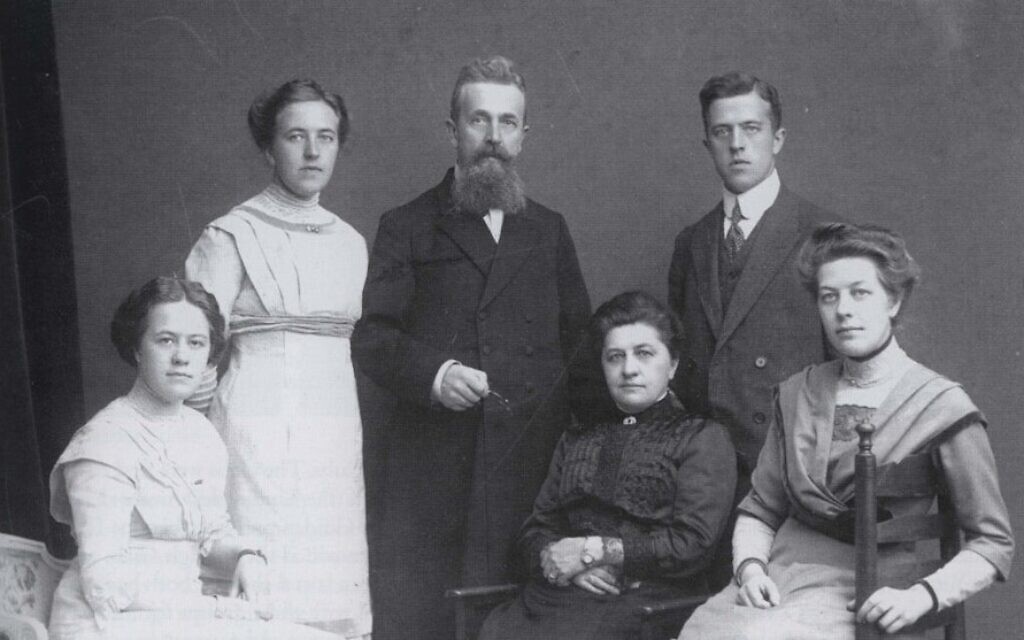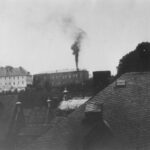Historical Essays, Reviews
What I saw at Corrie ten Boom’s Hiding Place
Eighty years ago, on February 28, 1944, the Nazis arrested a Dutch family in Haarlem in the Netherlands. The 84-year-old watchmaker Casper ten Boom—known as “Haarlem’s Grand Old Man”— and his daughters Betsie and Corrie (ages 58 and 52), had been hiding Jews; six people were huddled in a tiny secret room behind a false wall in Corrie’s top floor bedroom. It would become known to millions of people as “the hiding place”; those who sought safety there called it “the Angel’s Den.”
The story of the ten Booms is one of extraordinary power: of a family sacrificing all for the Jewish people, of faith and courage under brutal conditions, of seemingly impossible forgiveness. It is a story for all times, but especially for our times, as anti-Semitism rears its ugly head once again. The tale has already been told by Corrie herself in six books, including The Hiding Place (1971), which sold over three million copies; a film of the same name; and memoirs by her nephew Peter Van Woerden and by Hans Poley, one of those who survived the Nazis thanks to the Angel’s Den in the ten Boom house.
Surprisingly, it has taken a long time for a comprehensive popular biography to arrive. But now, we have Larry Loftis’s The Watchmaker’s Daughter (2023), an excellent retelling. It pulls together details from a range of sources to provide a readable and powerful narrative. Loftis begins with Casper’s father Willem, who opened the watch shop—referred to by all as “the Beje”—in 1837. Willem’s Dutch Reformed pastor asked him to start a prayer group for the Jewish people. “You know the Scriptures tell us to pray for the peace of Jerusalem and the blessing of the Jews.”
Willem gladly complied, saying: “I have always loved God’s ancient people. They gave us our Bible and our Saviour.” A portrait of Isaac de Costa, a lawyer, poet, and Messianic Jew who often called on Dutch Christians to pray for the Jews, hung in their home. When Casper lived in Amsterdam for a time, he frequently joined his Jewish neighbors on their Sabbath and holy days, studied the Talmud, and found his friends open to discussing why he believed that Jesus Christ was the fulfillment of the Old Testament promises.
When the Nazis invaded and the persecution of the Jews began, Casper had to be persuaded not to sew a Jewish star onto his coat. One day, he watched a truck filled with Jews pass by. Casper, referencing Deuteronomy 32:10 and Psalm 17:8, said to Corrie: “I pity the poor Germans, Corrie. They have touched the apple of God’s eye.” His oldest son Willem was soon hiding Jews in the nursing home he operated in Hilversum and in a hiding place beneath the floor of his study. When a Jewish woman asked for help, Casper did not hesitate: “In this household, God’s people are always welcome.”
Over the next two years, the entire ten Boom family was involved in the resistance and hiding Jews. Corrie helped save a hundred Jewish infant orphans, who were smuggled first into the Reformed Teacher Training College and then out to families in the countryside. She worked with many other Dutch Calvinists who, motivated by their faith, sought to save their countrymen. There were always fugitives at the Beje; the hiding place was built in case of Nazi raids. An estimated eight hundred Jews were saved by the efforts of the ten Booms.
Loftis describes one particularly poignant moment when an eighteen-year-old Jewish girl staying with the ten Booms, Mirjam de Jong, found out that her parents had been arrested by the Gestapo and sent to Poland. Casper—whom all the residents referred to as “Opa,” Dutch for grandfather—read from Psalm 23. As she sobbed, Casper held Mirjam in his arms, murmuring in her ear: “God bless you, my child.” Unlike Casper, Mirjam would survive the war, and move to Israel.
The ten Booms paid dearly for their commitment to their Jewish neighbors. They were betrayed by a Dutch collaborator. Nearly thirty members of the resistance were arrested in the Beje, although everyone in the hiding place successfully escaped. They were taken to a penitentiary in Scheveningen, where the Grand Old Man of Haarlem prayed aloud and recited Psalm 91 to calm the prisoners. A Nazi officer offered to release Casper if he would stop sheltering Jews; he replied, “If I go home today, tomorrow I will open my door again to any man in need who knocks.” He died in prison nine days later.
Corrie and Betsie were eventually sent to Ravensbrück concentration camp, where they endured relentless deprivation and brutality but shared the gospel with their fellow inmates. Betsie died that December. Their nephew, Kik ten Boom, died in Bergen-Belsen the following year, just days after his 25th birthday. His father Willem was released but died in 1946 from tuberculosis contracted in prison. Corrie was released due to a clerical error at the end of 1944; a week later, all of the women in her age group were gassed. When she arrived back in the Netherlands in January 1945, she was so emaciated and sickly that she was unrecognizable.
In Ravensbrück, Corrie and Betsie had talked about how they would help others after the war. Corrie went on to pursue their vision alone: She established a home for those who were spiritually and emotionally damaged by the war. She also opened the Beje to Dutch people who had collaborated with the Nazis and were now in desperate need of healing—a testament to the power of the gospel. She wrote a letter to the man whose betrayal had caused the death of her father and sister to tell him she forgave him; soon after, she worked in war-torn Germany, helping the destitute and offering hope.
READ THE REST OF THIS COLUMN AT FIRST THINGS








